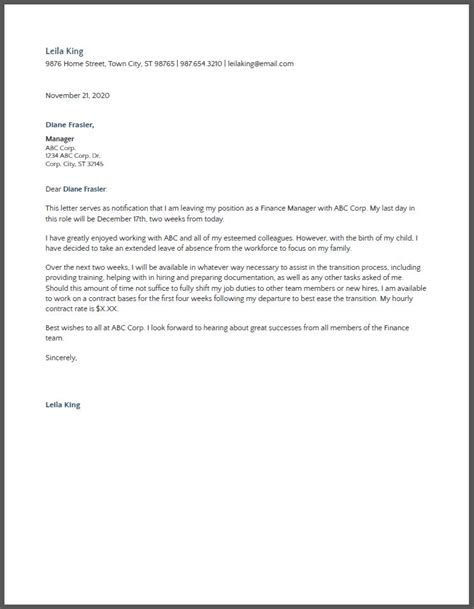Professional Job Resignation Expert Tips For Quitting

Leaving a job can be stressful and emotional, but it’s important to do it professionally and with grace. Whether you’re leaving because of a better opportunity or simply need a change, there are certain steps you can take to resign from your job in a way that leaves a positive impression and maintains your professional reputation. In this post, we’ll provide you with expert tips for quitting your job like a pro.
1. Consider Your Reasons for Quitting
Before you hand in your resignation letter, take some time to think carefully about why you’re leaving your job. Is it because of a difficult boss or toxic work environment? Is it because you’ve found a better opportunity elsewhere? Or is it because you simply need a change? Understanding your reasons for leaving can help you communicate your decision to your employer and make a smooth transition.
2. Plan Your Resignation
Once you’ve decided to resign, it’s important to plan your departure carefully. Think about the timing of your resignation, and give your employer plenty of notice. Two weeks’ notice is standard, but if you’re in a senior role or have a long tenure with the company, you may want to give more notice. You should also prepare a resignation letter that is professional, polite, and to the point.
3. Have a Conversation with Your Manager
Resigning from a job is a big decision, and it’s important to have a face-to-face conversation with your manager to discuss your decision. Schedule a meeting with your manager, and be prepared to explain your reasons for leaving. Be honest and direct, but also be respectful and professional. Your manager may be disappointed, but they will appreciate your honesty and professionalism.
4. Offer to Help with the Transition
When you resign from a job, it’s important to make the transition as smooth as possible. Offer to help train your replacement, and be available to answer any questions your employer may have. This will show that you care about the company and want to leave on good terms.
5. Tie Up Loose Ends
Before you leave your job, make sure you tie up all loose ends. Finish any outstanding projects, and make sure all of your work is up to date. This will make the transition easier for your employer and your replacement.
6. Say Goodbye Professionally
When it’s time to leave, make sure you say goodbye professionally. Thank your employer and colleagues for the opportunity to work with them, and express your appreciation for the experience you gained while working there. Leave on a positive note, and maintain your professional reputation.
7. Take Care of Yourself
Leaving a job can be emotional and stressful, so it’s important to take care of yourself during the transition. Take some time to decompress and reflect on your experience, and focus on your next steps. Whether you’re starting a new job or taking some time off, make sure you take care of yourself both physically and emotionally.
8. FAQs
Q: How much notice should I give before resigning?
A: Two weeks’ notice is standard, but if you’re in a senior role or have a long tenure with the company, you may want to give more notice.
Q: Do I have to give a reason for resigning?
A: No, you don’t have to give a reason for resigning, but it’s a good idea to be honest and direct with your employer.
Q: Should I tell my colleagues that I’m leaving?
A: Yes, it’s a good idea to let your colleagues know that you’re leaving. You don’t have to go into detail, but it’s important to maintain positive relationships with your colleagues.
Q: Can I resign by email?
A: While it’s possible to resign by email, it’s always better to resign in person or over the phone. This shows that you respect your employer and value your professional relationship.
Q: What should I do if my employer makes a counteroffer?
A: If your employer makes a counteroffer, take some time to think it over carefully. Consider whether the counteroffer addresses your reasons for leaving, and whether it’s in your best interest to stay with the company.
Conclusion
Resigning from a job can be challenging, but it’s important to do it professionally and with grace. By following these expert tips, you can resign from your job in a way that leaves a positive impression and maintains your professional reputation. Remember to consider your reasons for leaving, plan your resignation, have a conversation with your manager, offer to help with the transition, tie up loose ends, say goodbye professionally, and take care of yourself during the transition.
